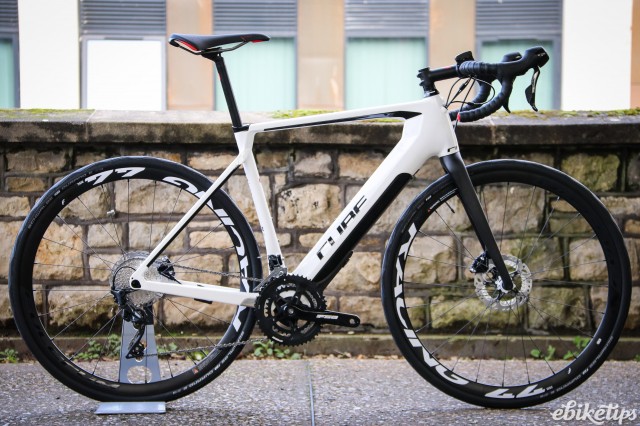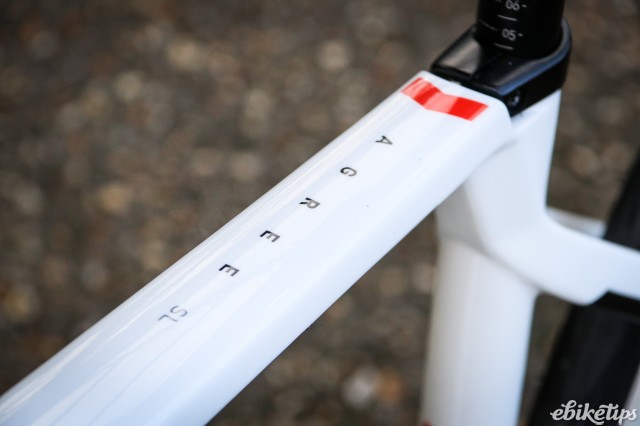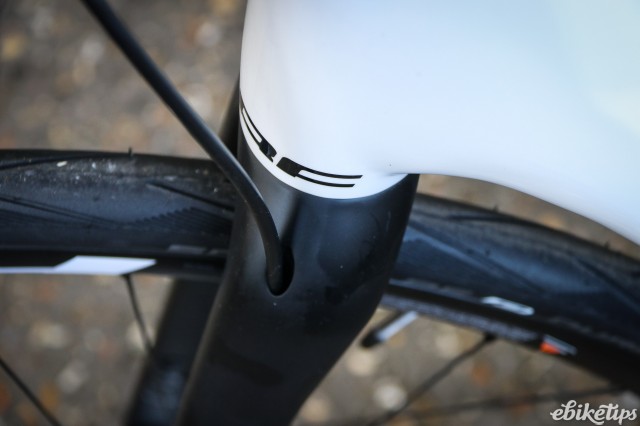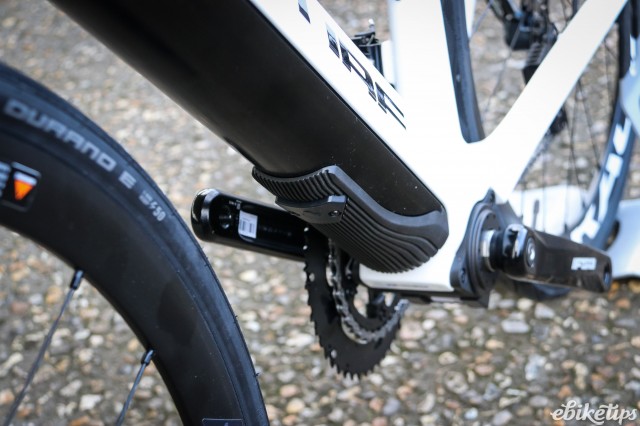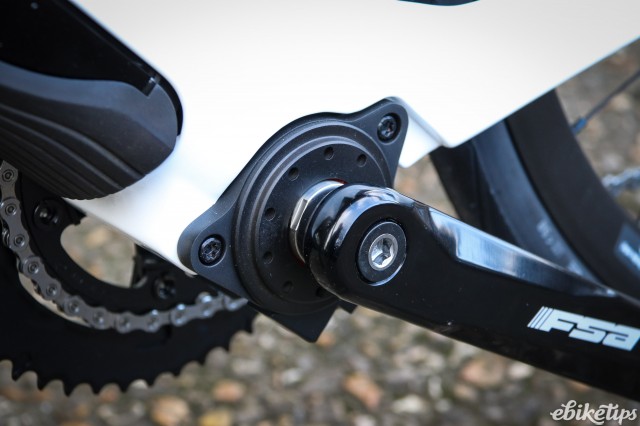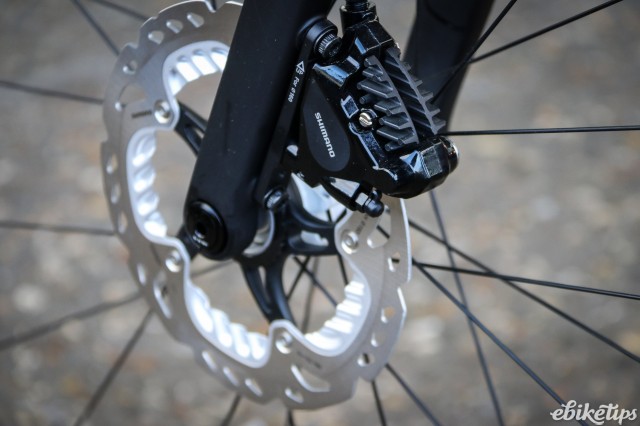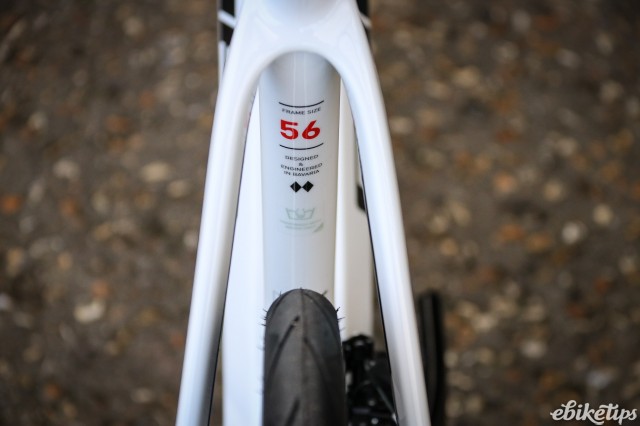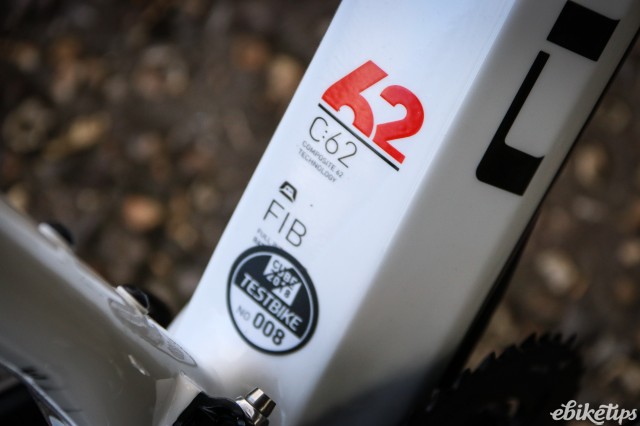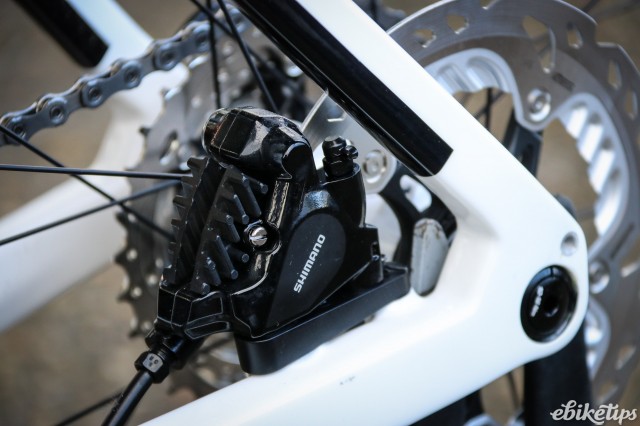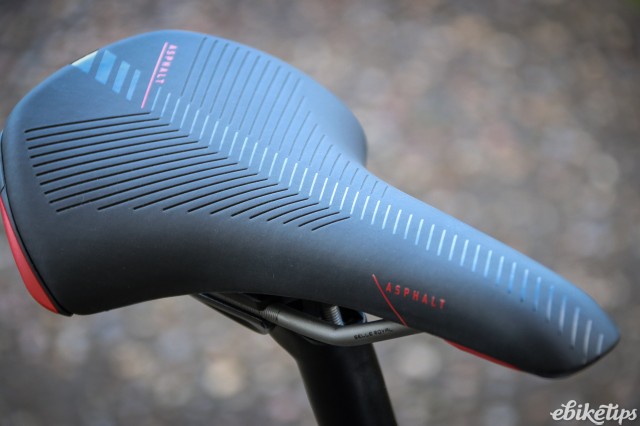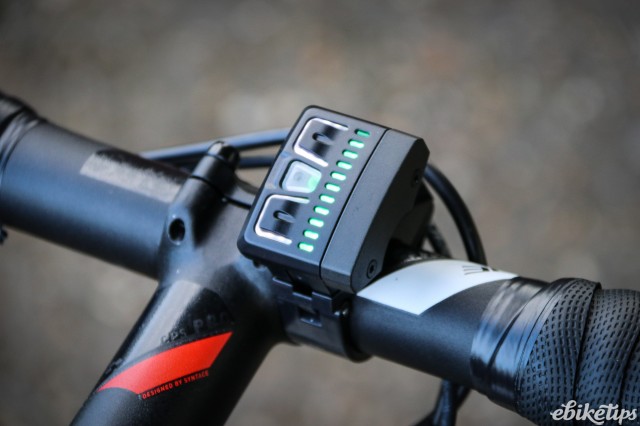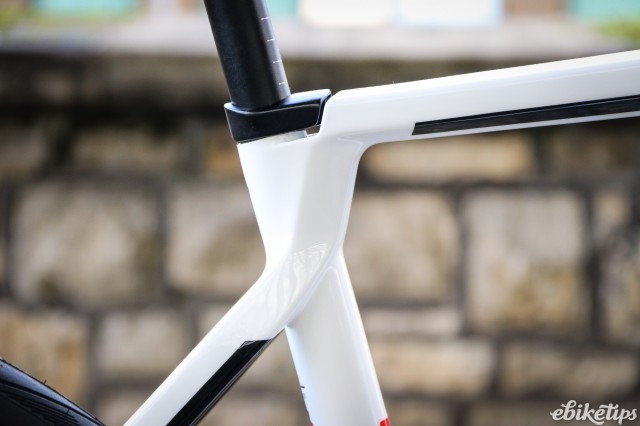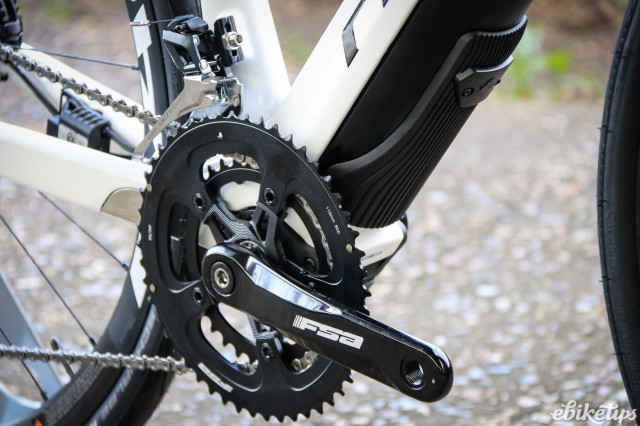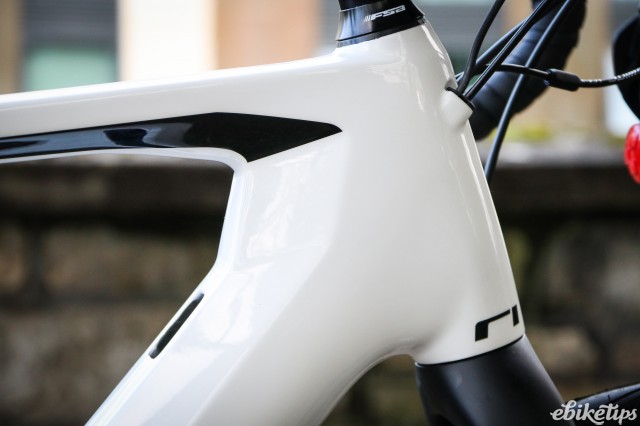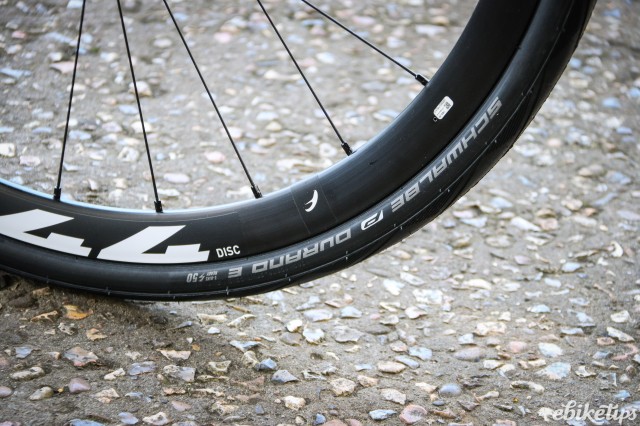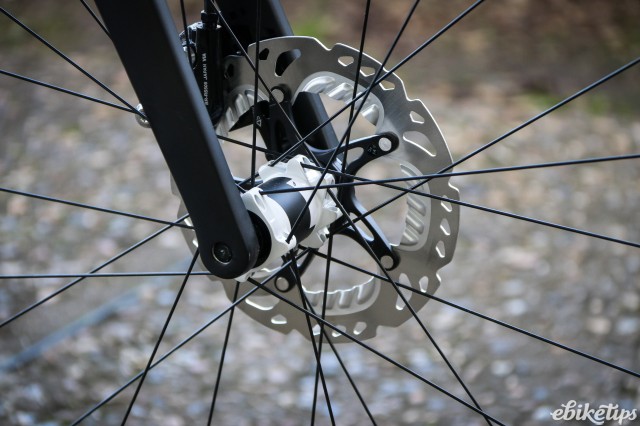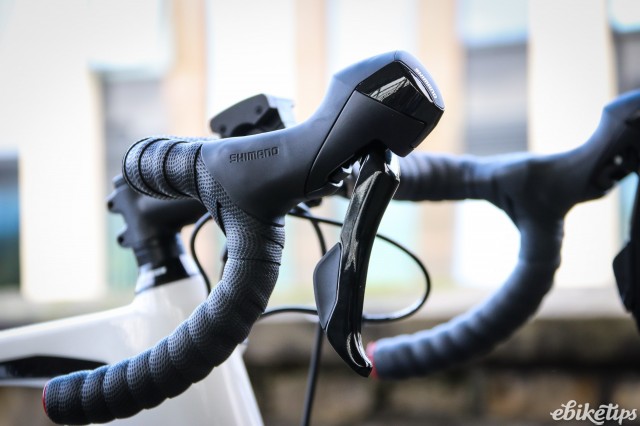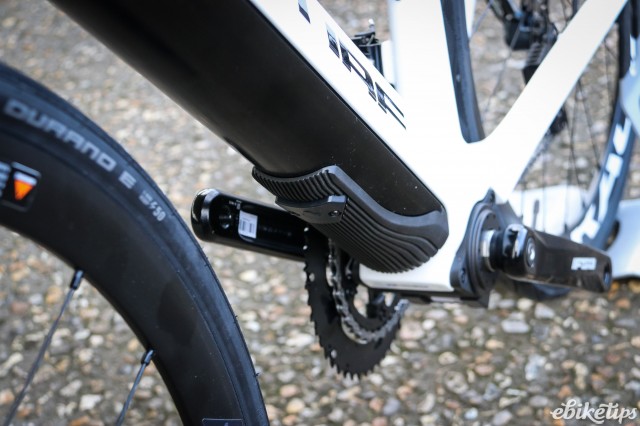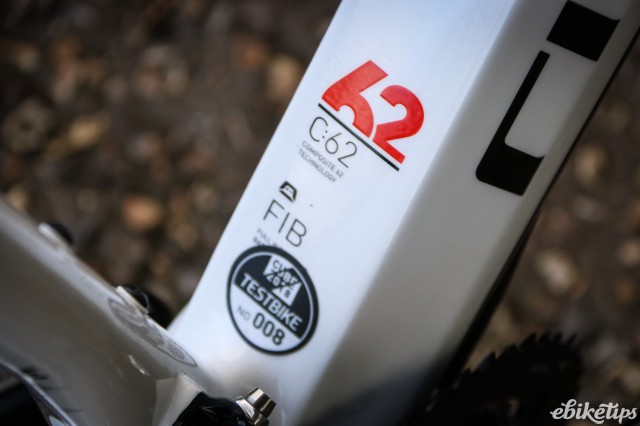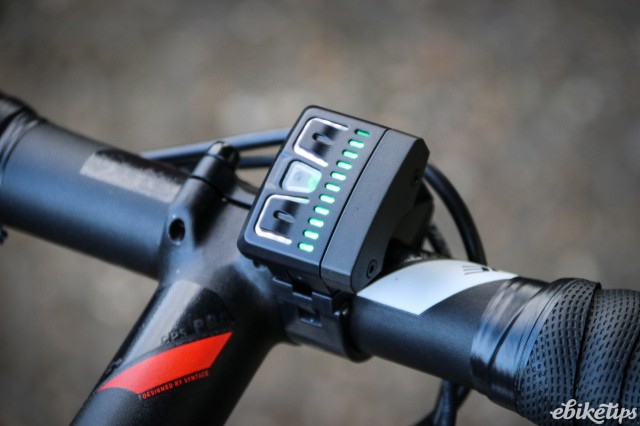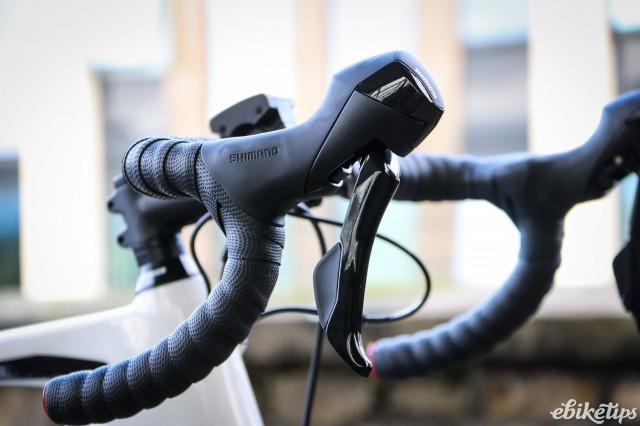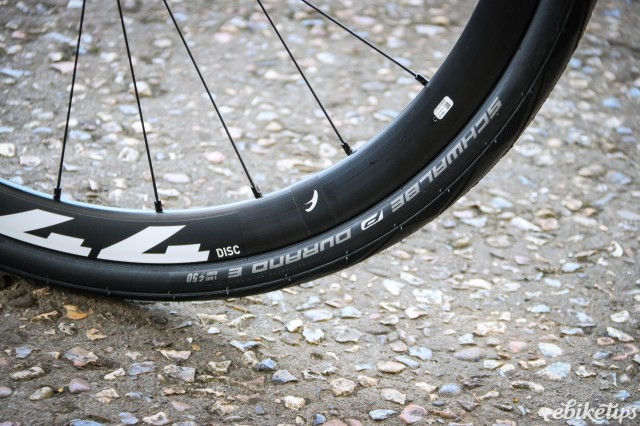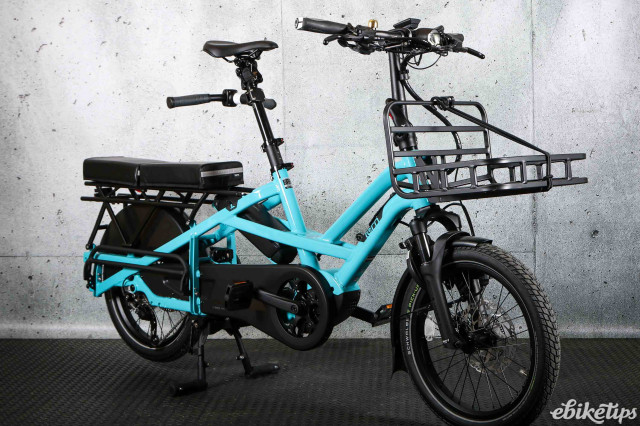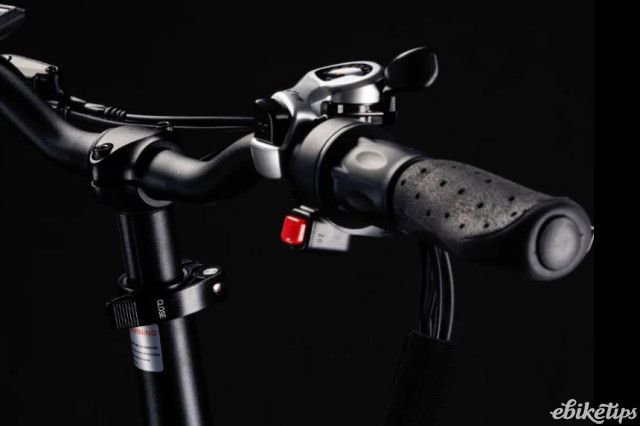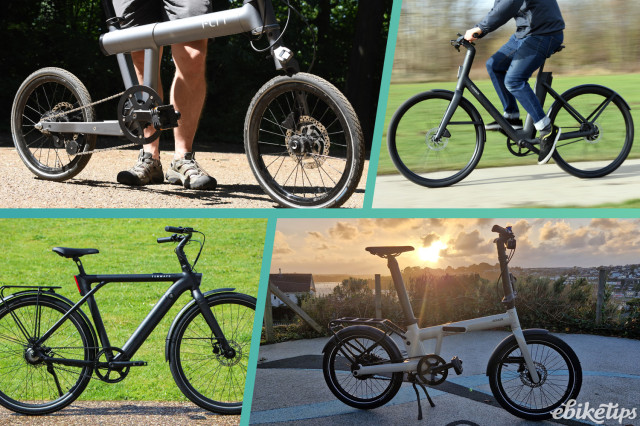Review: Cube Agree Hybrid C:62 SL Disc
Overview
- Motor system is light and unobtrusive
- Modular motor can be removed for non-powered riding
- Fun to ride
- Tyres are sluggish
- Motor system not as powerful as alternative
- Bar remote is fiddly
It’s an expensive bit of kit, but Cube’s Agree Hybrid C:62 SL Disc is a very interesting and capable bike. It’s the most road-bike-like electric bike I’ve ridden, with a very low (for an e-bike) 14.3kg all-in weight, and the ability to drop the motor for unassisted rides. If you’re looking for a new road bike and the idea of getting a bit of help appeals to you but not for every ride, you can have your cake and eat it.
The e-road bike sector exploded into life at the tail end of last year, with German bike brand Cube opting to electrify their Agree road frame rather than go for a whole new line. The result is the Agree Hybrid C:62 SL Disc, a high-end race machine with a 250Wh battery and 60Nm drive pack concealed within its frameset.
That motor system is called Evation and it’s made by German manufacturer Fazua. It’s one that’s being widely adopted by companies wanting to make electric bikes with more of a road bent. There are a number of reasons for this. The first is that the system has a sub-5kg all-in weight, which is just what you want when you’re trying to get a bike that behaves more like a normal road bike.
Secondly, nearly all of the system can be removed. The battery pack and the motor can be dropped out of the frame, leaving only the gearbox. A blanking plate can be put in place to fill the hole in the frame, and the weight penalty over a non-powered bike is around 1kg. So without the motor this Cube weighs in at less than 11kg, which puts it into standard road bike territory, albeit at the heavy end.
Thirdly, the system is very unobtrusive, fitting entirely into the bottom bracket and down tube. I’ve been out with experienced riders on this bike who have entirely failed to notice it’s an e-bike until they were left standing on a hill. It’s really well integrated.
The first thing to note about the Cube is that it rides a lot like a normal bike. For most of your time aboard, it doesn’t feel like a penalty to be riding it. The bike has the same geometry as the non-powered Cube Agree and that bike is a favourite with our sister site road.cc; when cruising or descending the bike feels composed and stable, with the extra weight of the motor central and low in the frame to affect handling as little as possible.
I
f you haven’t got the motor turned on, then pulling away from a junction or short efforts on rolling roads betray the bike’s extra weight, and it’s not much fun to try and sprint on it, but it’s not really designed for that. If you drop the battery out and just use the bike unpowered then it’s even closer to the experience of riding a standard road bike, as you might expect. Once the road points upwards in a more meaningful way, it’s time to work through the modes.
"Tackle any climb, ride further or ride more... it's all there for the taking", says Cube, The assistance is controlled by an Evation 1.0 Remote clamped to the 31.8mm Cube Gravel handlebars. There are three levels of assistance, and a 10-LED battery level indicator. So how effective is the motor?
Well the first thing to say is that for a lot of a ride on a bike like this, you’re not going to be using the motor anyway. It’s easy to spin this bike up to 25km/h on the flat, especially if you’re riding in a group, and above that you don’t get any help. When the pace slows the motor kicks in, and it’s a fairly gentle assistance compared to a full-power mid motor, but it’s enough to make most hills trivially easy without having to break a sweat.
Fazua claim up to 60Nm of torque which would put the motor in direct competition with the Bosch Performance Line motor, at 63Nm. There’s no contest there: this motor isn’t anywhere near as powerful as the Performance Line, and I’d peg it below the 45Nm Bosch Active Line motor in terms of the amount of kick it’s got. If that sounds like I’m saying it’s a bad unit then I’m not: this is a light bike and designed for a fairly active rider. The 22-speed transmission gives you plenty of gears to attack very steep climbs and fly up them. You’ll be doing a bit of work yourself but it’s much, much easier than attempting it under your own steam. If you don’t believe that, you can go out riding with a friend who’d normally smash you up a climb and see how the playing field gets levelled…
The fact that you’re not riding under power means that the range from the 250Wh battery is very good. I’ve completed hilly rides of 70-80km without being in any danger of running out of juice. The amount of full-power climbing you can do is limited: you wouldn’t get from the bottom of Alpe d’Huez to the top on full gas, but for hilly UK riding you can pack a lot in before you’re on your own. Even then, the Cube is certainly one of the more rideable bikes with a dead battery, thanks to its low weight.
The C:62 SL model comes equipped with a Shimano Ultegra 11 speed gears and hydraulic discs. Shimano’s Ultegra is well-proven and it’s a fantastic drivetrain that just works. The Shimano hydraulic brakes are probably the pick of all the road brakes out there at the moment, so stopping is never an issue. The spec sheet for the bike has it supplied with FSA carbon cranks and Newman Evolution wheels; ours had alloy cranks and Fulcrum Racing 44 Disc wheels, which probably added a bit to the overall weight but didn’t materially affect the performance. One thing that did was the Shimano 105 hydraulic levers, which are nowhere near as good as the Ultegra-level ST-R8020 shifters the bike is supposed to come with. Assuming production bikes match the published spec, though, you won’t go wrong there.
Like most e-road bikes the Cube can take a bigger tyre than one that’s designed for just tarmac. It’s not as gappy as some, especially at the fork, but there’s plenty of room around the 32mm Schwalbe Durano E tyres, so you could probably sneak some ‘cross tyres in there if you fancied a bit of graded trail alongside the asphalt. The tyres are a low point on the spec: they feel a bit sluggish and heavy. Swapping them out for something like Schwalbe’s excellent 30mm G-One Speed would improve the bike’s feel significantly. The Fazua remote is another thing that’s less than excellent: it has the feel of a 3D-printed prototype and the buttons are a bit vague. I had some issues with the seatpost slipping, with the clamp feeling a bit pre-production; I’d expect this to be ironed out on production bikes. I didn’t get on with the saddle either, but that’s a personal thing.
So who’s this bike for? Well, I can see various uses for it. If you have a long commute that you like to do by bike but it’s a bit much for every day, this might be just the ticket: it flattens out the topography and allows you to ride further, or more often. You could even leave the motor at home on days you were feeling fresh, saving it for a lazy Friday or a hungover Monday. If you’re going out with friends or a club who are riding at a higher level than you then the motor can be a great leveller on the climbs where you’d normally get dropped. And if you just want to keep enjoying your road riding if you’re getting on or you’ve suffered an injury and your leg power isn’t what it once was, then this might be just the ticket. It’s not the no-effort experience up the hills that a more powerful mid motor might be, but it’s more like a road bike than any other e-bike I’ve yet tried. It’s an expensive bike at £4,499 but it might be worth the outlay if you can see it suiting your particular ride profile.
